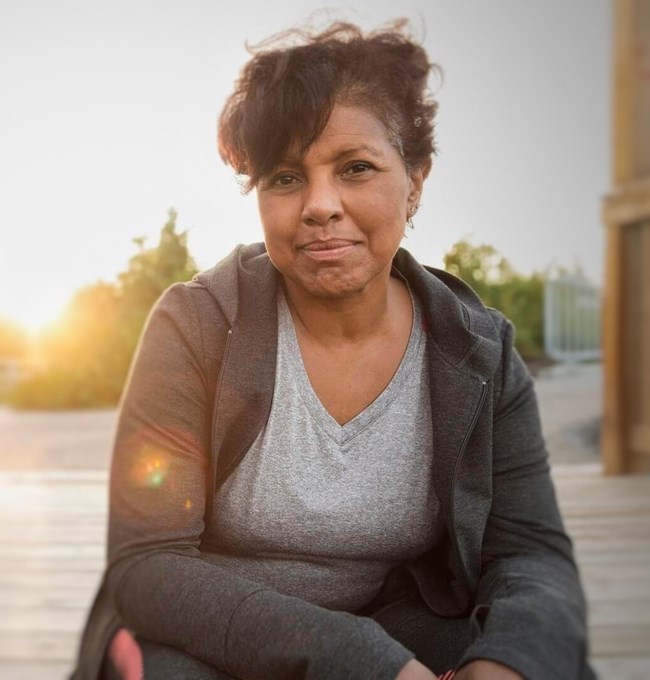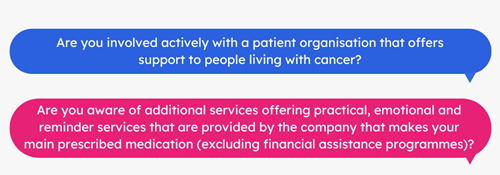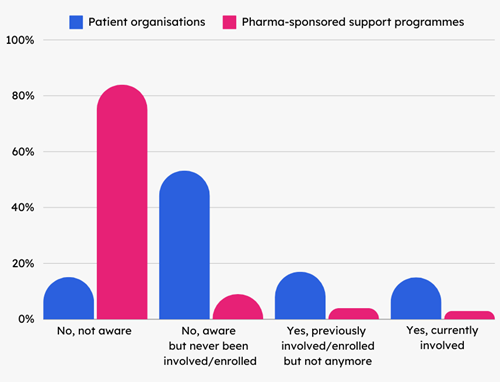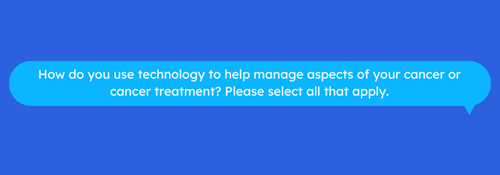Are Cancer Patients Missing Out on Support?
Effective support plays a vital role in helping cancer patients to navigate the complexities of treatment and manage the emotional and physical challenges that arise from living with cancer.
Support can come in various forms—whether through family and friends, patient organisations, a personalised support programme, resources provided on the web, or digital tools designed to empower self-management and adherence to medication.

Effective support plays a vital role in helping cancer patients to navigate the complexities of treatment and manage the emotional and physical challenges that arise from living with cancer.
Support can come in various forms—whether through family and friends, patient organisations, a personalised support programme, resources provided on the web, or digital tools designed to empower self-management and adherence to medication.
Methodology
We conducted a global online survey with 126 cancer patients taking self-administered anti-cancer medication at home.*
To explore the patient perspective of available support, we asked participants if they were:
- Aware of and involved in patient organisations that offer support to cancer patients
- Aware of and enrolled in pharma-sponsored support programmes
- Using various types of digital health technology to help manage their cancer, including their treatment.
We were interested in exploring cancer patient awareness and engagement with support outside of traditional healthcare provision, and which digital health tools were most commonly used.
*More information on the demographic and clinical characteristics of the sample can be found here.
Support Beyond Traditional Healthcare Provision


Awareness of patient organisations was high, with only 15% of participants unaware of a patient organisation offering support to people living with cancer. Among those who were aware, 37% had previously been, or are currently, involved with a patient organisation.
Conversely, awareness of pharma-sponsored patient support programmes was very low, with only 16% reporting they were aware of a programme. However, among those who were aware, nearly half (45%) had enrolled. This suggests patients are more likely to engage with pharma-sponsored programmes once aware about them, more so than patient organisations.
Reasons for not enrolling included:
- Feeling sufficiently supported by friends and family
- Feeling sufficiently supported by a nurse or insurance company
- Low understanding of the benefits of a pharma-sponsored support programme
Engagement can only improve if patients are made aware of the services available to them. This involves informing both patients and their healthcare teams about the availability and benefits of a pharma-sponsored programme, beyond what can be provided by family, friends, and other support organisations.
Digital Technologies for Health & Wellbeing


Almost all participants reported using some form of technology to help manage their cancer. In particular, using technology to seek information online about the cancer and/or cancer treatment was the most prevalent, highlighting the importance of ensuring adequate, reliable, and accurate information about the medication is not only made available online, but also is easily accessible.
When developing any patient support solution, it is important to meet people where they are—and provide reliable and relevant information along with practical and psychosocial support in the digital space.
Optimising Oncology Patient Support
Atlantis Health has over 25 years' experience supporting pharma with designing and delivering personalised, multichannel support programmes. We provide strategic guidance in defining awareness and engagement plans to communicate programme benefits to healthcare teams and their patients.
As well, we have a robust approach for assessing and optimising existing programmes to incorporate digital health tools and empower those living with cancer to Change for Good
To learn more about how our findings and expertise can be leveraged in your patient engagement strategy, contact our Global Head of Behavioural Science and Lead Researcher—Dr Kate Perry—for a 30-minute online discussion: Click Here to contact Kate and request a meeting and receive a free copy of our study report.
Read about our expertise and more behavioural science insights.
